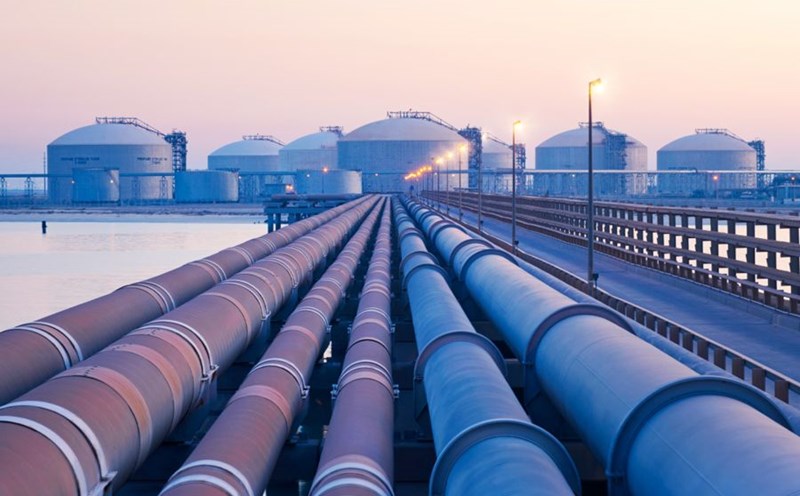Saudi Arabia is shaking the global oil market once again, but this time it is not to keep oil prices but to collapse it.
Bloomberg reported that in the latest online meeting with OPEC+ members, Saudi Arabian crown prince Abdulaziz bin Salman unexpectedly recalled a historical lesson from 1973 - the time when the OPEC bloc imposed oil tariffs that caused oil prices to skyrocket. But instead of recreating a " supply shock" like half a century ago, Riyadh is now doing the opposite: pumping more oil into a surplus market, pushing prices even lower.
This is the second consecutive month that OPEC+ has decided to sharply increase production, this time by 411,000 barrels/day in June. The move comes after oil prices fell below $60/barrel, a four-year low, and risked triggering an oil price war within OPEC+.
On the surface, this appears to be an effort by Saudi Arabia to punish countries that violate quotas such as Kazakhstan and Iraq - countries that continue to produce more than committed. But behind that is a deeper calculation - satisfying US President Donald Trump, who will have a trip to the Middle East for more than a week.
Mr. Trump has long criticized OPEC and called for cheaper oil prices to support US consumers, especially in the context of the trade war with China putting pressure on the global economy.
Saudi Arabia's increase in production immediately after Mr. Trump launched a trade war shows a "smooth coordination", not just a coincidence. While the 1973 oil shock was a blow to the West for supporting Israel, the 2025 output increase was a welcome for the White House.

A hot spot at the meeting was Kazakhstan. The country's representative said it could not control mining projects operated by foreign companies, especially the Tengiz project led by Chevron - which is causing Kazakhstan's output to skyrocket.
Meanwhile, Iraq, which has repeatedly violated quotas, continues to give internal reasons, but has not been able to convince Riyadh. In fact, this is not the first time Saudi Arabia has applied hard measures to members who are not disciplined.
Russia, a key ally in OPEC+, has also warned that it, along with Saudi Arabia, the UAE and Kuwait, still have ample reserves and can completely pump more oil if necessary.
According to experts, this move shows that Saudi Arabia is giving up its decade-long production reduction strategy to increase oil prices - a strategy that has helped the US strongly rise thanks to da.
Saudi Arabia is playing another game, according to Jorge Leon from Rystad Energy. They accept a low oil exchange in the short term to regain market share, regain their position in OPEC+ and pave the way for deeper security relations with Washington.
As the US looks to resumed the nuclear deal with Iran, Saudi Arabia's largest geopolitical rival in the region, Riyadh has reason to "go one step ahead" to maintain its strategic position.
But this is not a cheap gambling game. Saudi Arabia's budget, which is heavily dependent on oil, will be tightened if oil prices continue to plummet. Their unilateral actions also risk making small countries in OPEC+ angry and cracking deep inside the bloc.











